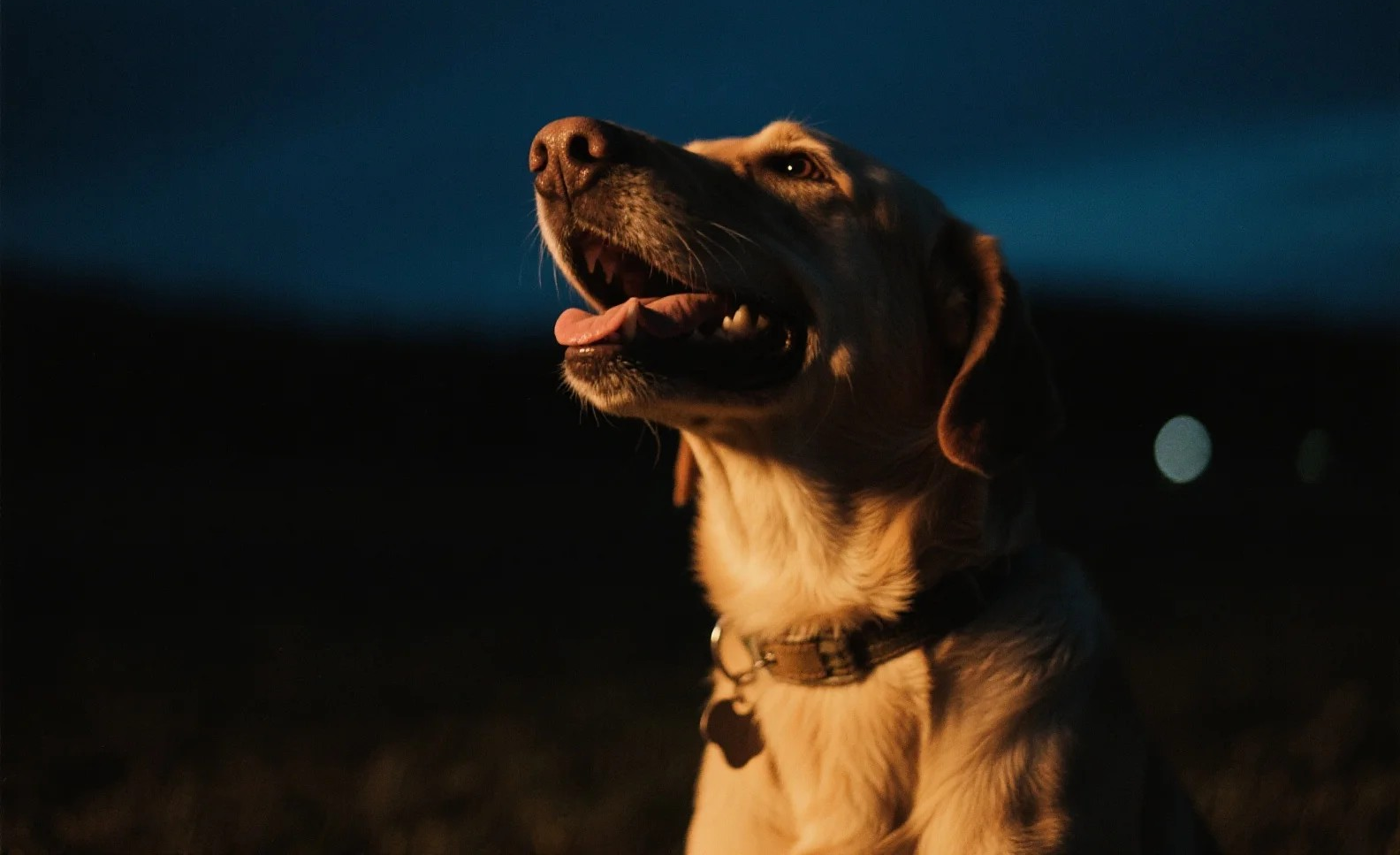As a loving dog owner, noticing your dog panting excessively at night can be concerning. Panting is a normal behavior in dogs—it’s one of their primary ways to regulate body temperature. However, when you observe your dog panting excessively or unusually at night, it’s essential to understand why this might be happening and what you can do to help. In this comprehensive guide, we’ll explore why dogs pant at night, what might be causing it, and when it’s time to seek veterinary advice.
Table of Contents
What Does Panting Mean in Dogs?
Panting is a natural, normal mechanism for dogs to cool themselves down since they do not sweat like humans. They breathe rapidly through their mouths, which helps evaporate moisture from their tongue, mouth, and upper respiratory tract, cooling them down effectively.
Usually, panting happens during or after physical activity, in hot weather, or when a dog is anxious or excited. Panting at night, however, when the environment is typically cooler and the dog is resting, may indicate something more.
Common Reasons Why Dogs Pant at Night
1. Heat and Temperature Regulation
Even at night, your dog might be too warm. Rooms with poor ventilation, heated beds, or lying close to heat sources can cause discomfort, leading to panting. Dogs with thick or long coats may be more prone to overheating during sleep.
2. Anxiety and Stress
Dogs can experience anxiety for various reasons, such as separation anxiety, changes in the household, unfamiliar noises, or even a new environment. This can cause them to pant even when at rest. If your dog is panting at night and seems restless, pacing, whining, or showing other signs of anxiety, this might be the cause.
3. Pain or Discomfort
Panting can signal your dog is in pain. Conditions such as arthritis, dental pain, or internal issues can cause discomfort that leads to night panting. If your dog whimpers, has difficulty moving, or changes in behavior, pain could be a factor.
4. Health Problems and Illness
Panting at night can be a symptom of underlying medical conditions:
- Respiratory issues: Problems like asthma, infections, or a collapsed trachea.
- Heart disease: Congestive heart failure or other cardiac issues can cause panting due to difficulty breathing.
- Cushing’s disease: An endocrine disorder that increases panting due to elevated cortisol levels.
- Fever or infections: Illness can cause your dog’s body temperature to rise, leading to panting.
5. Medications or Side Effects
Certain medications may cause increased panting as a side effect. If your dog recently started a new drug, check with your veterinarian.
When to Be Concerned About Dog Panting at Night
While occasional panting is normal, continuous or heavy panting during rest or sleep is a reason to consult your vet, especially if it’s accompanied by:
- Lethargy or weakness
- Vomiting or diarrhea
- Coughing or difficulty breathing
- Pale or blue gums
- Restlessness or inability to settle
- Changes in appetite or drinking habits
How to Help Your Dog Panting at Night
Create a Comfortable Sleeping Environment
- Regulate room temperature: Make sure the room is cool, well-ventilated, and free from drafts.
- Provide a cooling bed or surface: Cooling mats or beds designed for dogs can ease overheating.
- Avoid overheating: Brush your dog regularly if it has a thick coat, and avoid heavy blankets or covers at night.
Reduce Stress and Anxiety
- Establish a bedtime routine: Consistency can help dogs feel secure.
- Use calming products: Diffusers with pheromones or calming treats might reduce anxiety.
- Provide companionship: Sometimes leaving a light on or having you nearby can ease nighttime fears.
Monitor and Manage Health Issues
- Keep regular vet checkups to track your dog’s health.
- Follow your vet’s guidance for managing chronic diseases.
- If pain or illness is suspected, immediate veterinary attention is required.
Conclusion
Dog panting at night can stem from simple causes like heat or anxiety, but it can also signal more serious health issues. By observing your dog closely and creating a comfortable, stress-free environment, you can often reduce night panting. However, when panting is severe, persistent, or accompanied by other concerning symptoms, a veterinary evaluation is essential.
Understanding why your dog panting at night will help you provide the best care possible for your furry friend—and ensure they sleep soundly, just like you do.
